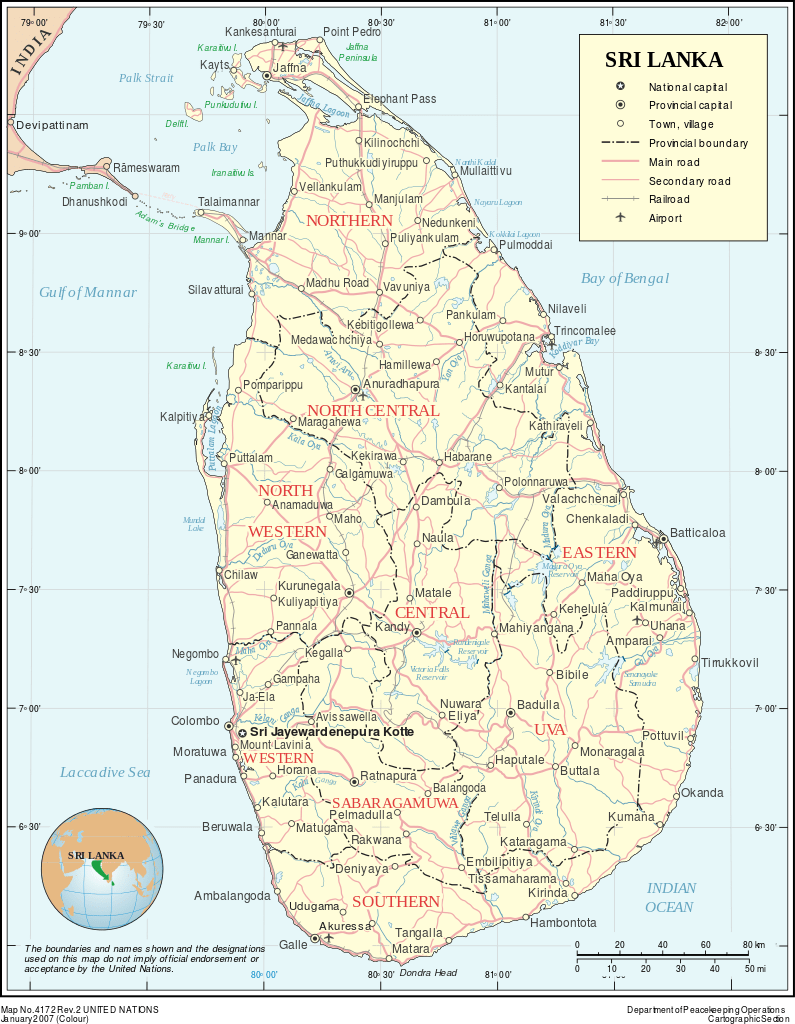COLOMBO – “You can’t say the threat is over but the situation is well under control.” That is the assessment of Sri Lanka’s Health Minister, Rajitha Senaratne, as of May 3, mere days following the terrorist bombings of several churches and hotels in this island nation.
 Senaratne told reporters that, internally,
Senaratne told reporters that, internally,
“Everyone is giving information. They come forward to give a lot of information.”
Aid has been coming from outside the country from the U.S., the UK, Morocco, and neighboring India. That foreign assistance includes the services of foreign intelligence offices to help track down escaped perpetrators and investigate potential sources of future attacks.
In difficult times, government statements tend to be positive so as to promote a sense of security and stability. It is the government’s responsibility to provide security for its citizens, so reassurances following tragedies should be expected.
However, warning signs of the spread of radical Islam throughout Sri Lanka have been clear during the past decade. The New York Times published an op-ed by Ameena Hussein, a novelist and conservative Muslim who lives in the capital city of Colombo. She noted how a relaxed immigration policy had permitted extremist leader and teachers to enter Sri Lanka where they have spent the decade spreading their ideology and gaining some followers. She explained that
“The government seemed unaware they had caught another tiger by the tail. And some Muslim leaders have used this radicalization to ensure they would stay in power.
The planning, scale, and precision of the attacks reflect months, if not years, of preparation and a slow, deep process of radicalization that Sri Lanka has ignored.
A few people committed an act of treachery that left our country in shreds and our community in limbo, and in the end, the blame lies with them. But too many of us were unaware of how deeply the rot had set in.”
Although calm is being restored, a spirit of uneasiness can be felt throughout the country, much like in America in the months immediately after September 11, 2001. Following 9/11, reports began to spread that terrorists were planning strategic attacks on bridges. Similar reports have now surfaced in Colombo as troops have uncovered stashes of weapons and explosions.
What is more, leading news sources including the New York Times and the Wall Street Journal have been publishing reports that “Sri Lanka Finds Evidence of Planning for Further Attacks” and “South Asia Is Islamic State’s New Target.”
Foreign Policy magazine agrees that South Asia is being set up to become ISIS’ next target for the building of its so-called caliphate following its failures in Syria and Iraq, with the Maldives already “a hotspot for pro-Islamic State activities.”
The magazine posits that “India would be the most obvious target for an Islamic State-backed attack.” It appears that the terrorist group may be planning a different approach of launching “a franchised form of terrorism” in smaller nations, leaving the world and South Asia guessing as to what comes next.
Pray with us for the Lord’s protection of the people of South Asia. Pray for those who serve Jesus in these countries and that He will keep them out of harm’s way.
To read more news on Islam on Missions Box, go here.
Sources:
- The Straits Times, Extremists planning attacks on bridges in Colombo: Sri Lanka police
- The Economic Times, India, Morocco prevent further terror strikes in Sri Lanka
- The New York Times, Fighting for the Soul of Islam in Sri Lanka
- Foreign Policy, ISIS’s New Target: South Asia




